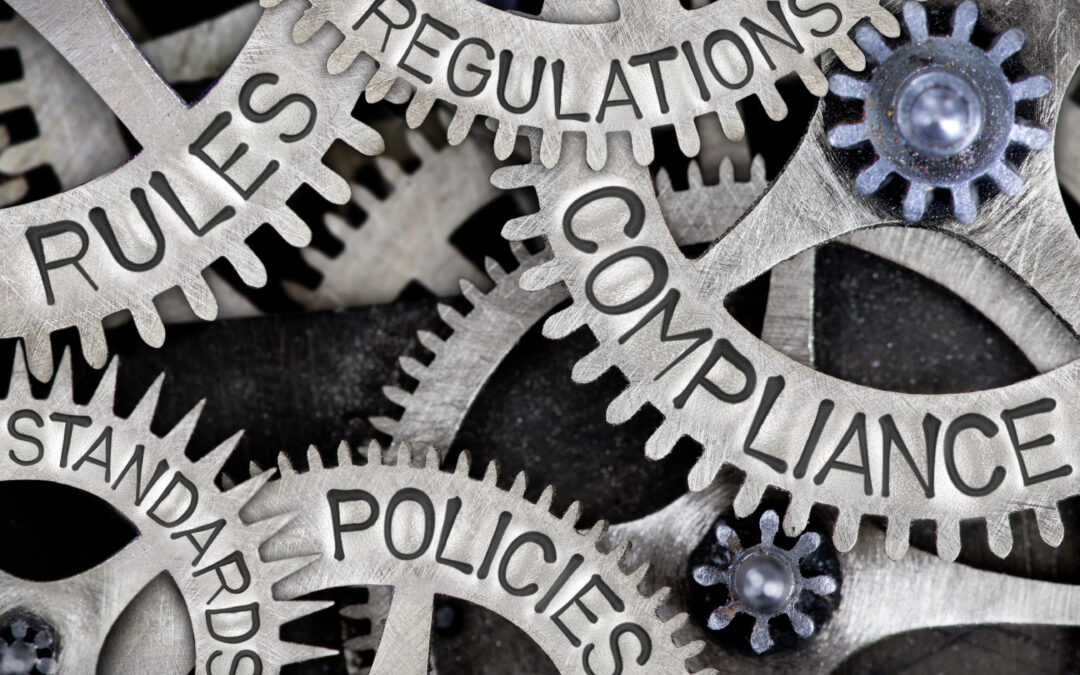Regulatory compliance can feel overwhelming for many business owners. Laws and rules change frequently, and keeping up is challenging. However, compliance is a non-negotiable way to avoid fines, legal pitfalls, and damage to your organization’s reputation.
This post breaks down how to manage compliance in a constantly changing environment and answers common questions on improving compliance strategies.
Managing these requirements doesn’t have to be intimidating—with the right approach, you can protect your business.
The Importance of Staying Compliant in a Changing Regulatory Environment
Business laws and regulations are never static. Regulatory authorities routinely update rules and introduce new compliance requirements in response to new developments. If you’re not monitoring these updates, your company could unknowingly fall out of compliance.
Data privacy laws, workplace safety standards, and other industry regulations can change yearly—often revised multiple times within a year. It’s up to businesses to monitor and adapt to these changes to remain compliant.
The consequences of non-compliance are never worth the risk.
Among the many potential outcomes if you fail to comply with the law are hefty fines or serious legal action. Beyond government penalties, there’s also the risk of reputational damage—clients and partners expect compliance and value trustworthy organizations.
Maintaining proactive compliance is far easier than scrambling to fix a violation after the fact. Prioritizing compliance and making it part of your business strategy safeguards your company’s future and spares you any unnecessary legal pitfalls.
Common Compliance Challenges
Even with the best intentions, businesses often struggle with certain aspects of compliance. Knowing the common pain points can help you prepare and respond better.
Here are some of the most common compliance challenges organizations face:
Frequent Changes
Laws and rules can get updated regularly, and staying updated with these changes is a task. If you aren’t actively tracking new regulations, it’s easy to fall behind.
Complex Requirements
Many regulations come with detailed, complex requirements that can be difficult to interpret. Understanding what is required—especially when jargon or technical details are involved—can be challenging without expert help.
Don’t miss this article next: Legal Risk Management: Turning Risks Into Business Opportunities.
Resource and Time Constraints
Small and mid-sized businesses may not have dedicated compliance departments. Managing daily operations with ongoing compliance responsibilities can stretch your team’s capacity.
Employee Awareness and Training
It’s not only management that should be concerned about compliance. Employees on the front lines also need to be aware of the rules that apply to their work. Ensuring every team member understands and follows the proper procedures requires ongoing training and communication.
With a proactive plan, all of these challenges can be overcome.
In the next section, we’ll explore practical strategies to strengthen your company’s approach to compliance.
4 Strategies to Improve Compliance
The key to overcoming compliance challenges and improving your organization’s compliance is to be proactive. Rather than waiting for an issue to arise, adopt clear strategies and best practices in advance.
Here are four practical strategies to strengthen and maintain regulatory compliance in your business:
1. Integrate Compliance into Business Strategy
Treat compliance as a function of your business that’s as important as budgeting or inventory. This means that whenever you launch a new product, enter a new market, or change a process, consider the regulatory implications from the start.
Leadership sets the tone that complying with laws and regulations is a non-negotiable part of the company’s mission. When compliance is built into your strategy, it becomes a natural part of operations rather than an afterthought.
2. Conduct Regular Risk Assessments and Audits
Periodically evaluate your operations with an eye out for any compliance risks.
A thorough compliance risk assessment identifies vulnerabilities. For instance, a regulation you weren’t fully aware of or a procedure employees are not consistently following.
Conducting audits of your practices (either through internal reviews or third-party experts) is the best way to catch potential compliance violations early. This way, you can address them before they snowball into larger problems.
You can use a risk assessment framework to monitor these risks. Learn more about these frameworks in this article: Implementing Effective Risk Assessment Frameworks.
3. Train Employees and Foster a Culture of Compliance
Can you guarantee that everyone in your organization understands the importance of following rules and procedures? Until you provide regular training sessions and easy-to-understand guidelines for your staff regarding relevant laws and company policies, the answer is likely no.
Encourage a culture where employees feel comfortable asking questions or reporting concerns related to compliance.
When compliance becomes an ingrained part of your corporate culture rather than a one-off event, you can be sure your team understands that it’s an important and ongoing responsibility.
4. Stay Informed about Regulatory Changes
Keeping up-to-date on regulatory changes is the ticket to preventing being caught off guard. Assign someone in your team (or yourself, if you’re a small business owner) to monitor news from regulatory authorities and industry groups.
Don’t hesitate to consult with legal counsel or compliance experts periodically to ensure you haven’t missed any new developments.
Wrapping Up: Get Support with Your Ongoing Compliance Efforts
Regulatory compliance is an ongoing effort, but it pays off in spades by protecting your business from legal trouble. By putting these strategies into practice, you will be well-equipped for whatever regulatory shifts come next.
Do you have questions or need extra guidance with compliance? The experienced Denver business lawyers at Contiguglia Law Firm in Denver can provide personalized legal advice to ensure your company stays compliant.
Contact us today to request a free strategy session about safeguarding your business.



